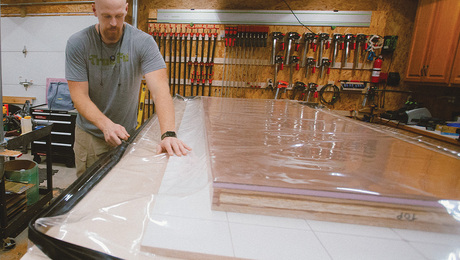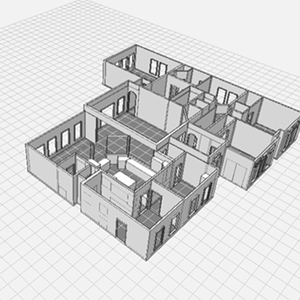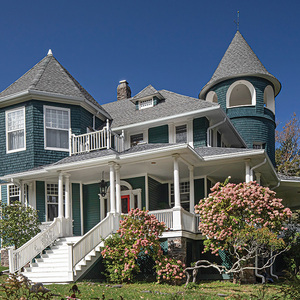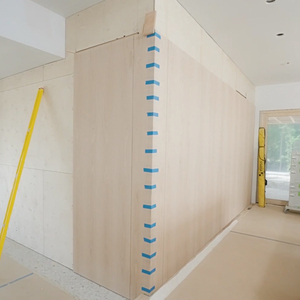*
Your resale value will be much higher with a basement. there are a lot people that would not buy a house without a basement. if you have to cut back, cut back on something that you can add later.
Discussion Forum
Discussion Forum
Up Next
Video Shorts
Featured Story

Engineered materials and vacuum-press laminations prevent warping and keep a tall, flush-panel door from being excessively heavy.
Highlights
"I have learned so much thanks to the searchable articles on the FHB website. I can confidently say that I expect to be a life-long subscriber." - M.K.
Fine Homebuilding Magazine
- Home Group
- Antique Trader
- Arts & Crafts Homes
- Bank Note Reporter
- Cabin Life
- Cuisine at Home
- Fine Gardening
- Fine Woodworking
- Green Building Advisor
- Garden Gate
- Horticulture
- Keep Craft Alive
- Log Home Living
- Military Trader/Vehicles
- Numismatic News
- Numismaster
- Old Cars Weekly
- Old House Journal
- Period Homes
- Popular Woodworking
- Script
- ShopNotes
- Sports Collectors Digest
- Threads
- Timber Home Living
- Traditional Building
- Woodsmith
- World Coin News
- Writer's Digest


















Replies
*
People often say that a basement provides "cheap space." The reason is simple: you're only paying a small premium above what it would cost to build a slab foundation. A slab must be surrounded by a perimeter footing extending below the frost line. To build a basement, you only need as much extra concrete as it would take to make up the difference between the footing height and the basement wall height. Plus you'll have some additional excavation, but you'll probably have a backhoe on site anyway to dig the footing trenches.
You'll generally get more for your money if you build a basement.
There are some circumstances that may make a basement problematic, though. If the building site is difficult to drain (e.g. - a hollow, without access to municipal drains), you may have flooding problems. Ledge might also present difficulties. Talk to the owners of neighboring buildings. They may be able to provide useful insight into local conditions.
-Ron-
*
Termites can enter a house via the expansion joints in a slab foundation. In Hawaii, where the dreaded Formosan termite is a problem, fine stainless steel mesh is installed before the slab is poured to prevent termite entry. Although termite infestation is certainly possible with a basement, it's easier to spot the entry points.
Paranoid about termites,
msteinkampf
*Isn't there a third option? Just a simple stem wall foundation with a raised floor. Advantages of a "basement" without excavating and framing walls (of course no extra space). Access to wires, plumbing, etc. No nasty hard concrete under your wood or carpet.I always prefer the raised floor.
*MarkBasements provide way more bang for the buck, let alone the saving of building another shop.You ask for price comparison.. use the phone...local i ballparkprices for each should be quickly available before resorting to quotes. Access to mechanicals is ideal. Quality builders don't leave you with cracked fndtn's or squeaky floors.-pm
*MarkOnly you know if you can afford a basement or not. My vote goes for the basement. Around here, it is considered a serious liability not to have a basement on a house, even a damp basement is better than no basement. A walk-out is ideal for a shop, even if you have to go with a Bilco door.John
*I think besides a taller foundation wall and some additional excavation (how deep is a footer in TN?) I think you also need a framed first floor, maybe a sump and pump, perhaps more drainage, and so on.
*The basement or not question is a regional thing. Up north, since your footings are 48" or more deep, you are already half way there, so you might as well go ahead and build a basement. Where I live, our footings are only required to be 12" below grade, so few houses have basements - say, about 10%. In FLA, I'll bet that there are almost no basements, as there is virtually no frost line, and many areas have a high water table and poor drainage. Here, crawl spaces provide the access to mechanical/plubming/electrical items. In my opinion, basements, more often than not, just provide long term storage for the stuff that people don't really need to keep anyway - excluding a shop, as mentioned in a previous post. Our trade off is a walk up attic for storage of all those "necessary" items.
*All, Thanks for the ideas and opinions. When we get the site picked out I'll see if there are any likely excavation problems with digging down for a basement, and the additional cost of a basement over a slab. Drainage too--I'd prefer to avoid a thirty year uphill battle against capillary/hygroscopic forces if a dry basement will be hard to achieve at that site (after taking common-sense steps). If everything checks out, then we'll go with a basement. A walk-out basement for my shop would be super. Thanks again.Mark
*
My wife and I are looking forward to building our "dream home" in 3 years, and trying to decide between a "real" basement and a slab foundation.
- We are planning to build a one-story home (approx 2200 sq feet) in TN. The outside walls would be insulated concrete forms (ICF).
- Which type of foundation will be less likely to cause trouble in the future? (cracks/settling, etc)
- A basement provides access to pipes/electrical, a slab does not. Is this a major factor in the "real world?"
- How much extra will a basement likely cost (assuming "normal" excavation--no blasting, etc)
- Does a slab offer any advantages? (Lower cost, floor won't squeak--anything else?)
- I want a woodshop, and would use the basement for this (plus probably a finished room for hobbies/crafts/sewing etc). But, if there's no basement I'd likely build a small separate shop out back (with heat and window AC).
Thanks for your thoughts/input/biases.
Mark
*If you go with the slab, _don't_ put ductwork under it. Mold, mildew, health problems, etc.Bob
*I've never had a problem using PCD perimeter in-slab ductwork when fully enclosed by concrete and with a vapor barrier, even with clients with allergies, etc.
*I hesitate to give my input since I know NOTHING about building but, as a person who's lived in homes I personally wouldn't buy or build my dream home without a basement. Period. As a carpet/fabric cleaning/protecting company half-owner, carpets on slab take alot longer to dry and are susceptible, like someone else stated, to mildew problems, etc. I had a home one time built on a slab and always regretted it.
*Slab construction is much cheaper.Basements give you a wonderfull place to put utilities and give you great access to pipes and electrical.
*Scooter just about sums it up, a bad slab is a bad slab...they don't have to have cracks, or be damp.. or be cold..they can be dry, durable , and insulated...but they will be concrete..a basement is a wonderful thing...you can usually get a first floor a little closer to grade with a slab than with a full foundation.. so if this is an access isssue... you might want to think about that..in the end, it is either a preference issue or a budget issue..
*Both can be structurally fine if properly built. But, a basement is some of the cheapest expansion and utility space you can buy. If the site supports it having a walkout basement is really nice both for future flexibility and for resale. I know, you think you won't sell. But the odds are you will so why not plan for it. If you don't you can use the space.
*Your resale value will be much higher with a basement. there are a lot people that would not buy a house without a basement. if you have to cut back, cut back on something that you can add later.